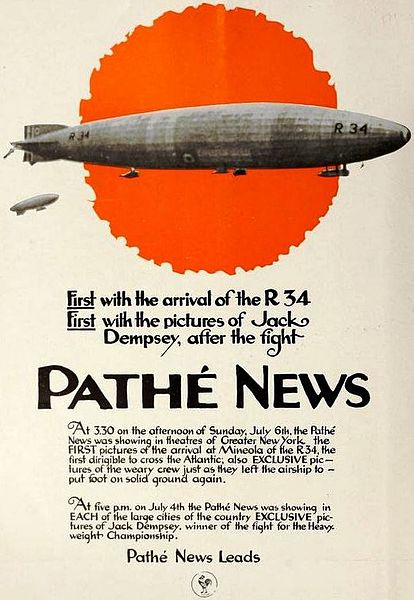British Pathé's Involvement In Propaganda During The Suez Crisis

Pathé is considered one of the leaders in British cinema experience, but its involvement in British Prime Minister Anthony Eden's propaganda war glooms over the celebrated legacy of the company.
Early on during the decision to invade Egypt in 1956, the British government authorized covert plans for political warfare and propaganda measures designed to undermine Egyptian president Gemal Abdel Nasser.
The government, concerned about the need to re-establish a sense of unity which in times of crisis has been non-existent in Britain, had to persuade the public that its actions were justifiable.
Cinema was part of domestic media that British government wanted to get a strong hold on. The government proceeded to influence the five major newsreels in the UK: British Paramount, British Movietone News, Gaumont British News and Universal News, and lastly, Pathé News.
SEE ALSO: Daniel Ellsberg On The Republic We Couldn’t Keep
The cinema newsreels were a medium that offered high quality moving pictures, which gave them a huge advantage over relatively poor black and white images on television. Around 3 million people visited cinemas each day, turning them into an important tool for influencing public opinion during the Suez invasion, and the attitude portrayed by the majority of these newsreels was a pro-Government bias.
In their portrayal of Nasser as well as Egypt, the cinema newsreels adopted the government stance by portraying him as a danger to the Middle East; Pathé regarded Nasser as a special threat.
In a broadcast shortly after the invasion, Pathé produced a film showing ruined buildings and people searching through the rubble, while the commentary said: “Egyptians wonder among the ruins and find that the water supply, at least, is working again. To the children it is something to stare at, but perhaps the old ones are thinking this is the price of Nasser’s folly.”
This, of course, was not a view shared by all of the British citizens, however, its details show that it was meant and targeted towards those who were not already standing with the government. Furthermore, the short report does not provide any evidence or support for the claim that it makes which becomes a theme in almost all of newsreel reporting of the crisis.
The cinema newsreels portrayal of the Anglo-French invading forces was also very much tied to the pro-government views. The withdrawal represented a national humiliation for both France and Britain and the newsreels were determined to depict just the opposite of that. The general impression they displayed was that the troops carried out their duties successfully, efficiently, and with disciplined restraint.
From domestic media outlets, to foreign stations, the Eden government was determined to control every aspect of information that these outlets distributed, believing that it could come out clean and successful despite the lies and secret plans which initiated the Suez crisis.
Reach Executive Producer Syuzanna Petrosyan here. Follow her on Twitter.



